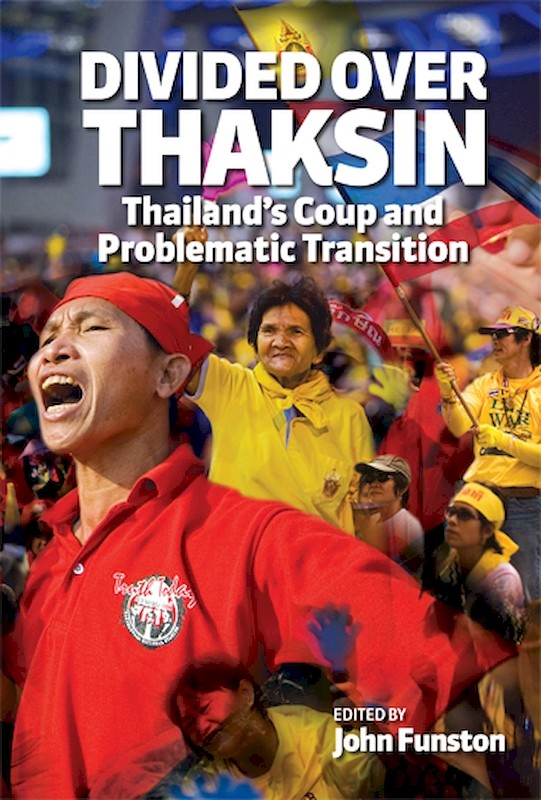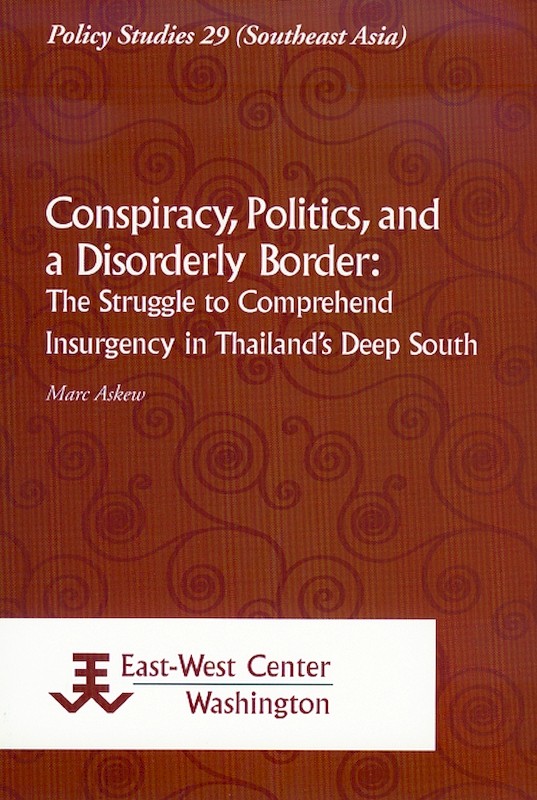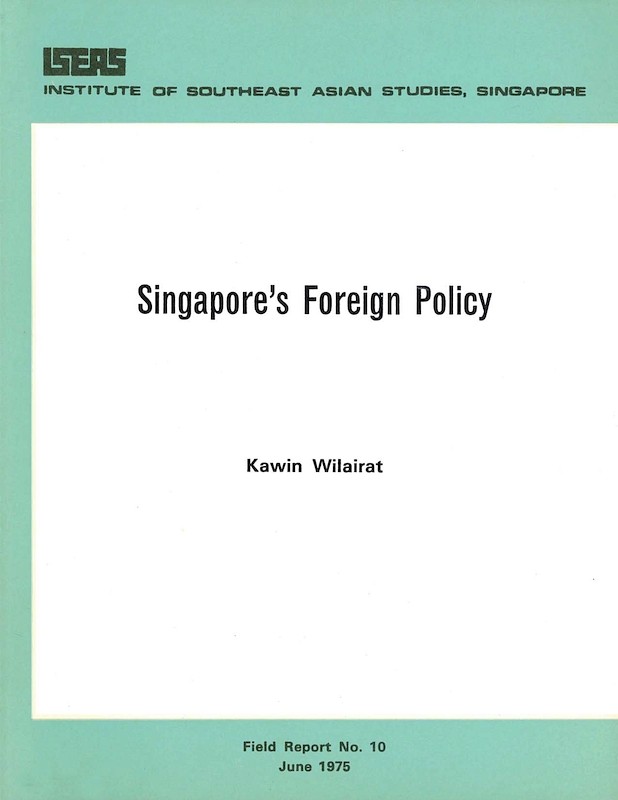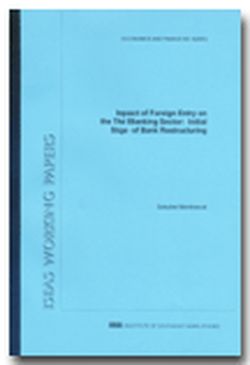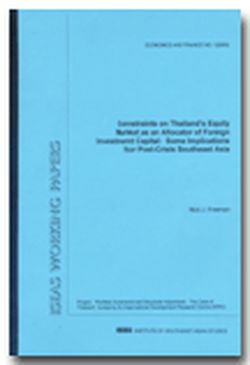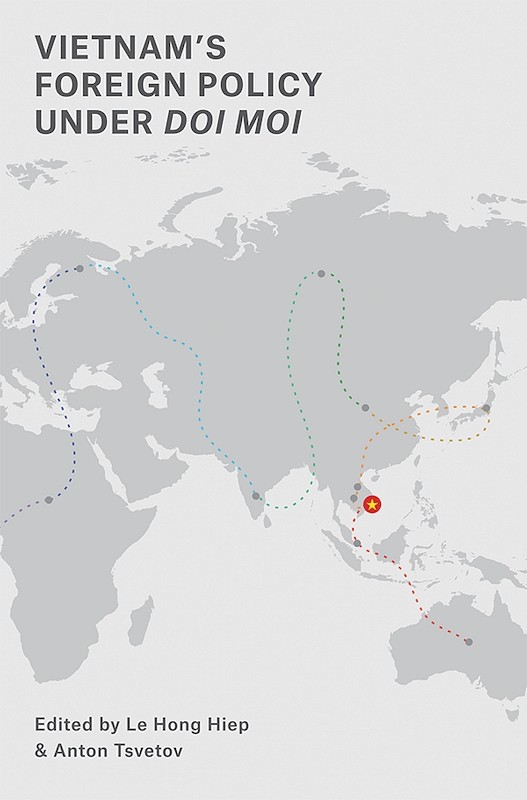Reinventing Thailand: Thaksin and His Foreign Policy
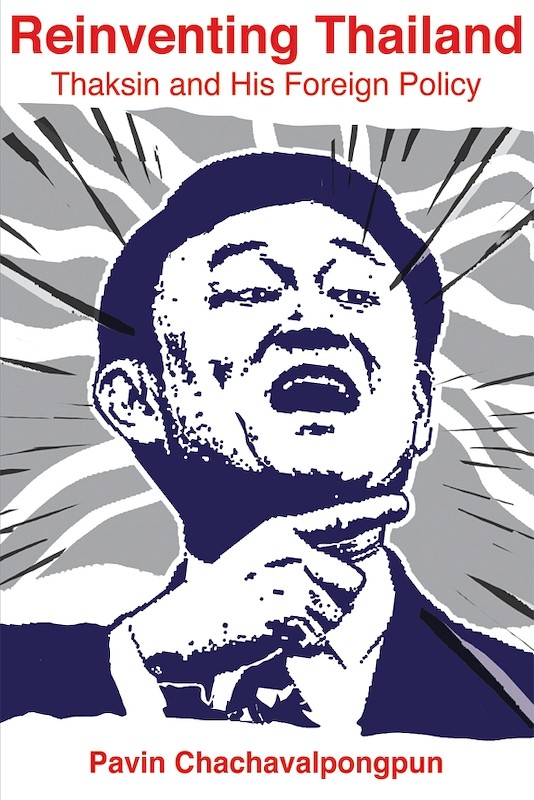
Pavin Chachavalpongpun, author
Date of publication:
2010
Publisher:
Institute of Southeast Asian Studies
Number of pages:
354
Code:
BM394
Soft Cover
ISBN: 9789814279192
Reviews
"The ousted premier's intention to use foreign relations to score political points at home became the driving force for the announcement of a new direction in foreign policy, seeking to make Bangkok a regional center of gravity for mainland Southeast Asia. Pavin opens the book with 12 pages of pictures illustrating just how much Thaksin appeared overseas -- hugging Hun Sen of Cambodia, knee to knee with Lee Kuan Yew, shaking the hand of then Chinese leader Jiang Zemin and Russian President Vladimir Putin, among others. 'Thaksin's bold foreign policy agendas, his innovative vision of the world, his reasonable English, prompted him to flaunt his ambition to become the region's next leader.' Thaksin had taken power as an unabashed business leader with the ambition to bring business principles to governing. Thailand's foreign ministry, Pavin writes, 'has undoubtedly fallen into the pit of political conflict. The current political situation sees two main opposing political factions, one that supports Thaksin and the other that, to a certain extent, represents the Bangkok elite, exploiting the ministry and using it as a tool to put their political messages across.' As a result, 'the foreign ministry has been dragged into a seemingly endless, vicious political game that has tainted its reputation deeply and diminished its relative independence in the conduct of diplomacy.' Pavin's verdict in the end is that the flaws imbued in Thaksin's foreign policy proved that his vision of foreign affairs was troublesome. The engine that drove his ambitions occasionally sputtered, thus diminishing the credibility of Thailand's diplomacy.' Nor are things likely to get better very soon. As with his domestic policy, that is the sad legacy of a prime minister who sought to grow too big, too powerful, too fast, and the sun melted the wax on his wings. It has been a long and painful fall and, if Pavin is right, it isn't over yet" (Asia Sentinel)>
“All in all, Pavin evaluates Thaksin's foreign policy negatively. For one, he criticises the lack of an ethical dimension to the politician's actions, in which no commitment to either democracy or human rights took priority. The author also points out that many of the foreign policy initiatives did not produce lasting effects; a good example of the lack of long-term thinking can be seen in the domain of multilateralism: “When the dust had settled, one realized that there was little left to see, or to be remembered" (p. 220). Pavin's book will provide the reader with profound insights. Pavin Chachavalpongpun, whose analysis is captivating due to its many strong points,suffice it to mention the two most important ones: First, the book is grounded on a perspicuous thesis which is examined from different perspectives and thereby persuasively substantiated. Pavin illustrates to what extent Thaksin's personal interests were intertwined with, or even superimposed, the national interests of the kingdom. In this context, he emphasises that even past prime ministers had used their position to advance their personal interests. He then distils what was new about Thaksin's approach. Second, the book is concrete proof of the author's particular closeness to the topic. Not only did he once serve in the Thai foreign ministry, but he also conducted a whole host of interviews with high-ranking decision-makers. These personal connections enabled him to form judgements based on inside knowledge. Reinventing Thailand is an indispensable treatise when it comes to understanding Thai foreign policy during the era of prime minister Thaksin Shinawatra. This monograph might henceforth even gain in importance. After the Thai opposition's parliamentary electoral victory in July 2011, Yingluck Shinawatra, one of Thaksin's sisters, was appointed the kingdom's new prime minister. Whether and to what extent she will be able to act independently of her exiled brother is doubtful. It is therefore very likely that some of Thaksin's ideas will - in a modified way- again shape Thai foreign policy. What the implications of such a development might be can be found in Pavin's book” (Journal of Current Southeast Asian Affairs).
“All in all, Pavin evaluates Thaksin's foreign policy negatively. For one, he criticises the lack of an ethical dimension to the politician's actions, in which no commitment to either democracy or human rights took priority. The author also points out that many of the foreign policy initiatives did not produce lasting effects; a good example of the lack of long-term thinking can be seen in the domain of multilateralism: “When the dust had settled, one realized that there was little left to see, or to be remembered" (p. 220). Pavin's book will provide the reader with profound insights. Pavin Chachavalpongpun, whose analysis is captivating due to its many strong points,suffice it to mention the two most important ones: First, the book is grounded on a perspicuous thesis which is examined from different perspectives and thereby persuasively substantiated. Pavin illustrates to what extent Thaksin's personal interests were intertwined with, or even superimposed, the national interests of the kingdom. In this context, he emphasises that even past prime ministers had used their position to advance their personal interests. He then distils what was new about Thaksin's approach. Second, the book is concrete proof of the author's particular closeness to the topic. Not only did he once serve in the Thai foreign ministry, but he also conducted a whole host of interviews with high-ranking decision-makers. These personal connections enabled him to form judgements based on inside knowledge. Reinventing Thailand is an indispensable treatise when it comes to understanding Thai foreign policy during the era of prime minister Thaksin Shinawatra. This monograph might henceforth even gain in importance. After the Thai opposition's parliamentary electoral victory in July 2011, Yingluck Shinawatra, one of Thaksin's sisters, was appointed the kingdom's new prime minister. Whether and to what extent she will be able to act independently of her exiled brother is doubtful. It is therefore very likely that some of Thaksin's ideas will - in a modified way- again shape Thai foreign policy. What the implications of such a development might be can be found in Pavin's book” (Journal of Current Southeast Asian Affairs).
About the publication
From 2001 to 2006, Prime Minister Thaksin Shinawatra transformed Thailand's international role from one of obscurity into a kind of regional hegemon. Thaksin's diplomatic ambitions were reflected in his myriad of grandiose foreign policy initiatives, designed to locate Thailand at the forefront of regional politics and reinstall the Thai sphere of influence over weaker neighbouring states. He abolished the traditional bending-with-the-wind foreign policy, revamped the Thai Foreign Ministry, and empowered Thai envoys through the CEO Ambassadors programme. But in this process, Thaksin was accused of exploiting foreign policy to enrich his business empire. Thaksin's reinvention of Thailand as an up-and-coming regional power was therefore tainted by conflicts of interest and the absence of ethical principles in the country's foreign policy.
Contents
-
Reinventing Thailand: Thaksin and His Foreign Policy
[Whole Publication, ISBN: 9789814279208] -
Preliminary pages
-
1. Introduction: Reinventing Thailand
-
2. Bamboo in the Wind: A Traditional Thai Diplomacy
-
3. Major Foreign Policy Initiatives: The Making of a Hegemonic Power?
-
4. Bilateral Relations: Tailoring of a Thaksinized Diplomacy
-
5. A Moot Foreign Policy: Shortcomings and Oversights
-
6. Conclusion: A Rickety Reinvention
-
7. Epilogue: The Post-Thaksin Foreign Policy
-
Bibliography
-
Index
-
About the Author
-
Photo Plates

